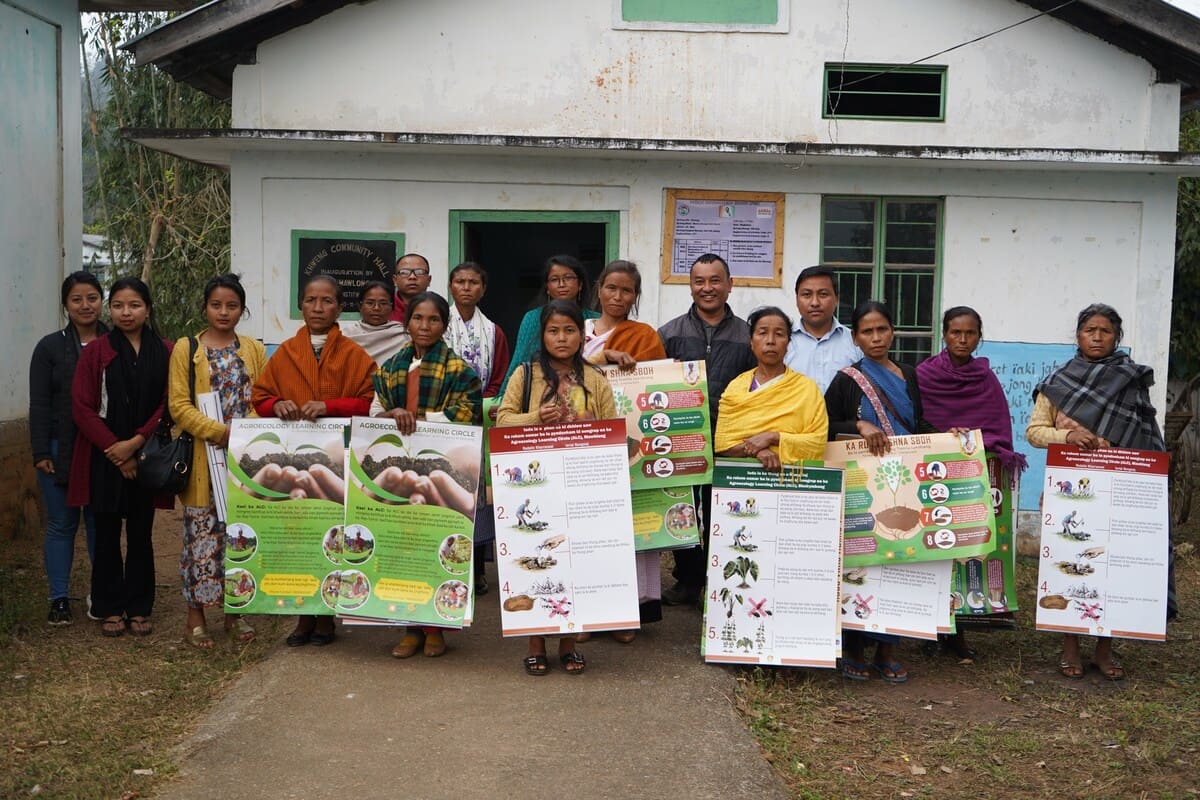
Indigenous Peoples’ Food systems are not only unique but are also resilient to have stood the test of time. Indigenous farming practices continue to be major economic contributors in rural Meghalaya despite it being the era of conventional agricultural methods. To further strengthen and empower the farmers in their endeavours to preserve and promote traditional farming practices and protect their food systems, NESFAS introduced the Agroecology Learning Circle (ALC) model in 2018 in their project “No One Shall be Left Behind Initiative”, in which they established 29 ALCs. The MBMA-World Bank then supported NESFAS to scale up this initiative to 100 more ALCs. The project was also part of the innovation component within the CommunityLed Landscape Management Project (CLLMP) led by MBMA. With the coming of this project, custodian farmers were given a common platform to share and exchange their knowledge, unique to their communities. It also saw the revival of many traditional practices and methods of pest management, soil management, and seed management. Most of these practices were found to be diminishing in their usage, with no written records or documentation. Experiments were conducted by ALC groups of each community under this project, using locally available resources mentioned in the methods. This also contributed to the inter-generational transfer of knowledge as people of all ages-men, women, youth and children took part in its activities such as Agrobiodiversity Walks, Cluster Sharing Workshops, Leadership training, and Community-Led Participatory Research.
